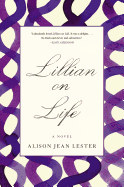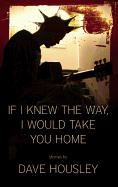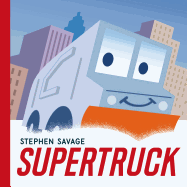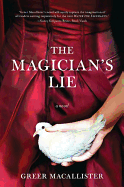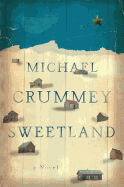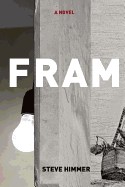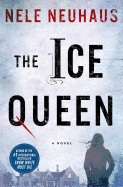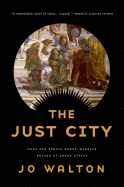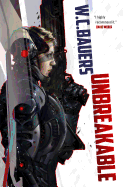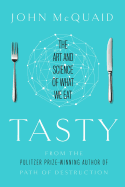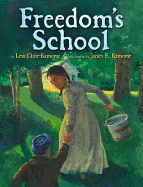Tuesday, January 20, 2015
Is that a soundtrack I hear? My reading life this winter has somehow become a ticket to a film-ish book festival. I'm not talking book-to-film adaptations, but works in which movies and Hollywood play a prominent role.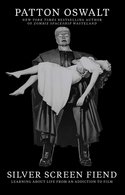 The realization hit me while reading Patton Oswalt's wonderful Silver Screen Fiend: Learning About Life from an Addiction to Film, and was confirmed by Tara Ison's Reeling Through Life: How I Learned to Live, Love and Die at the Movies. "Movies have gotten under my skin, formed my perceptions, influenced the choices I've made," Ison writes. "I've learned how to live at the movies, from the movies; I am who I am because of movies, and, to some degree, all the other movie freaks out there are, too." As am I.
The realization hit me while reading Patton Oswalt's wonderful Silver Screen Fiend: Learning About Life from an Addiction to Film, and was confirmed by Tara Ison's Reeling Through Life: How I Learned to Live, Love and Die at the Movies. "Movies have gotten under my skin, formed my perceptions, influenced the choices I've made," Ison writes. "I've learned how to live at the movies, from the movies; I am who I am because of movies, and, to some degree, all the other movie freaks out there are, too." As am I.
This reminds me of something Molly Gloss said at an event last fall. Her latest novel, Falling from Horses, is the intriguing tale of a young Oregon ranch hand who goes to Hollywood in 1938 to find work as a stunt rider in cowboy movies. "Even kids who grew up on a ranch were influenced by cowboy movies," Gloss observed. "Bud wanted to be like the cowboy heroes he saw growing up in the movies."
As it happens, two other excellent novels I've read recently also have film connections. Stewart O'Nan's West of Sunset is a sharp, fictionalized account of F. Scott Fitzgerald's final years in Hollywood; and the movie world plays a key supporting role in Emily St. John Mandel's bestselling Station Eleven.
"Oh what a world it was!" recalls the disillusioned narrator of one of my favorite novels, A Way of Life, Like Any Other by Darcy O'Brien, whose father really had been a popular star in 1930s Westerns.
Book-to-film adaptations may be dominating this year's Oscar nominations, but these characters--real and imagined--are caught in the act of adapting their lives to the movies. --Robert Gray, contributing editor
Lillian on Life
by Alison Jean Lester
"Whenever I wake up next to a man, before I'm fully awake, I think it's Ted. Of course it never is." These two sentences open Lillian on Life, Alison Jean Lester's compelling debut novel, in which a post-menopausal woman recounts her own profound life story and a series of love affairs that ultimately shaped her independence, feminist ideals and destiny. Over the course of 24 vignette-like chapters, Lillian reflects on what she's learned about living and loving--and resilience. Her stream-of-consciousness time line highlights her formative years in Columbia, Mo., growing up in a conservative family during the 1930s and 1940s; her maturation when she left home to study at Vassar; and the years she spent in search of herself, working abroad and ultimately landing a job with a newswire service that took her to New York.
Lillian recalls rich, insightful details, namely those about the men--some single, some married--with whom she indulged her passions on the way to meeting her true love, Ted, in the 1970s. The poignancy of hard-earned wisdom and clever, random wit infuse chapters with titles like "On Getting to Sex," "On One Night Stands," "On Fate" and "On What Happens Next."
The inventive structure of Lester's novel makes the confessional nature of Lillian's first-person narrative all the more appealing, granting readers an intimate glimpse into the heart, mind and yearnings of a daring woman who defied generational expectations and proved unafraid to live a life that suited her needs and desires despite the demands of convention. --Kathleen Gerard, blogger at Reading Between the Lines
Discover: An inventive novel that details the passions, choices and love affairs of a vibrant and fiercely independent feminist.
If I Knew the Way, I Would Take You Home
by Dave Housley
You know the people in Dave Housley's stories. They're the neighbors down the street or the weirdos at the bus stop. Their exterior lives are as recognizable as the hook to a Tom Petty song, as well drawn as a gatefold LP. But it's in portraying the interior lives of these characters that Dave Housley's collection of short stories and essays, If I Knew the Way, I Would Take You Home, most excels--where appearances might be familiar, the humans at their center are intricate, flawed and multifaceted, seeking salvation or something like it in the bands and songs they love most.
The rudder that steers Housley (Commercial Fiction) from one story to the next is his penchant for voice, for thoroughly inhabiting the mind and speech of characters as disparate as Gene Simmons impersonators and teen-girl Black Sabbath fans. Like the others, the second story in the collection, "The Jerry Garcia Finger," opens explosively: "Everything was going to sh*t. I needed a change. I decided to buy a car." From there, the reader rides along in the rickety Dodge Charger, throttling toward a strip club and regrettable choices at high RPMs. Amid the adventures and mishaps, Housley laces these pieces with humor, most remarkably in "Death and the Wiggles," in which a father takes his drunk lawyer friend and his wide-eyed son to a concert for toddlers.
Beneath the veneer of a hit single, an earworm you can't help but sing, there's often a mastermind at work. So it is, too, with these sharp and winsome stories. --Linnie Greene, freelance writer
Discover: A sharp, humorous story collection centered on the losers, outcasts and die-hard fans whose lives revolve around tape decks and record players.
The Magician's Lie
by Greer Macallister
Greer Macallister's debut novel, The Magician's Lie, opens with a murder: the husband of the Amazing Arden, a famous female stage magician, is found dead beneath the stage on which his wife just performed, and Arden is nowhere to be found. When she is spotted miles away by Virgil Holt, an injured policeman, he takes her into custody--where she spends hours insisting she's innocent. Intrigued, he asks for her explanation of what happened. Instead, he receives an account of Arden's life, starting with her days on a farm in Tennessee, building to her work as a traveling magician and star of her own show.
The Magician's Lie moves back and forth between a third-person narration of the magician held for questioning and Arden's first-person recollections, as she chronicles her life in order to save it. At times, these jumps can be jarring, though it is easy to believe that this was Macallister's intent; Holt's questions shake Arden out of her reveries and Arden's insistent storytelling pulls Holt back into her past. Combined, the two points of view reveal magic and illusion, romance and lost loves, murder and intrigue, and Macallister captures the whimsy and wonder of the traveling magic shows of the 20th century with stunning detail. At the heart of everything lies a woman whose tale of her own life does not match the vicious and cruel picture Holt has imagined; both he and the reader must decide what of Arden's story is the truth and what is a lie. --Kerry McHugh, blogger at Entomology of a Bookworm
Discover: This historical novel features a traveling female magician whose powers may just go beyond sleight-of-hand.
Sweetland
by Michael Crummey
Michael Crummey's Sweetland takes place in the twilight days of a tiny fishing town at the end of the earth. Sweetland, an island colony off the coast of Newfoundland, is so small it makes nearby port city St. John's seem like an intimidating metropolis. Few people still live there, most families having left long ago for the richer pastures of continental Canada. As Sweetland begins, the federal government has offered to pay a generous resettlement fee to each remaining resident if everyone agrees to vacate their island home. Moses Swietlund (pronounced "sweetland"), whose ancestors founded the town, is the last holdout.
Amid pressure from his family and friends to take the deal, Moses recalls the decades he's spent in Sweetland. He's quiet and deeply reserved, an aging bachelor who lost half his face and his ability to have children when working in an Ontario factory as a young man. He's friendly with the only child in town, his great-nephew who exhibits classic symptoms of autism. They make an odd couple, but the boy also loves the island in his own way. Sweetland is full of ghosts--more people have died or left than have ever stayed and Moses can't avoid making a decision much longer.
Crummey (Galore) neither glorifies nor denigrates the realities of small-town life, and presents each character with enormous poignancy and respect. The Newfoundlander-accented dialogue adds a tumbling musicality to the prose, authentic without a shred of condescension. This is a graceful, unexpectedly joyful novel that echoes emotionally far beyond the final pages. --Emma Page, bookseller at Island Books, Mercer Island, Wash.
Discover: An atmospheric, character-driven novel set in Newfoundland.
Fram
by Steve Himmer
Oscar is a minor government employee, working as a prognosticator in the Bureau of Ice Prognostication. Begun during the Cold War, the BIP is tasked with making "discoveries" in the Arctic. By establishing imaginary settlements and "finding" nonexistent deposits of resources, and then creating the bureaucratic paper trail to back up these fictional discoveries, Oscar and his fellow BIP employees are saving the government the time and money that real exploration would cost.
Oscar's predictable life continues for years as he maps out the adventures he'll never take in real life. He's content because he's sort of fulfilling his childhood dream of being an Arctic explorer. Abruptly, however, Oscar is sent to the real Arctic, where he embarks upon a surreal journey that will cause him to question his work as a prognosticator, the strained relationship he has with his wife, Julia, and even the nature of exploration.
Fram is an enigmatic book, in which Oscar (and the reader) are never quite sure what is going on. Much like the original Fram (the ship of 19th-century Norwegian explorer Fridtjof Nansen, who deliberately froze it into the Arctic ice pack in the hopes that the drifting currents would carry him to the North Pole), Steve Himmer's novel meanders along, taking the reader on an unexpectedly contemplative journey. Those who enjoy surreal fiction, musings on marriage or Arctic history books like In the Kingdom of Ice will likely embrace Oscar's exploits. --Jessica Howard, blogger at Quirky Bookworm
Discover: An enigmatic tale about Arctic exploration, a difficult marriage and the importance of fulfillment.
Mystery & Thriller
The Ice Queen
by Nele Neuhaus, transl. by Steven T. Murray
David Josua Goldberg, an 85-year-old Holocaust survivor, is found shot, execution-style, in his Frankfurt, Germany, home. Scrawled in his blood are the numbers 11645.
The autopsy reveals a tattoo that was usually exclusive to Hitler's SS. Detectives Oliver Bodenstein and Pia Kirchhoff are mystified. Was Goldberg not actually Jewish? Further complicating the situation, within a matter of days, two more people are found dead. The number 11645 is again found at the crime scenes. Bodenstein and Kirchhoff have to tread cautiously: all three of the elderly victims were friends of Vera Kaltensee, former Baroness of Zeydlitz-Lauenburg. Political pressure from the influential Kaltensee family, plus suspected ties to über-Nazis, make the situation extremely tricky. When two more bodies turn up and two men go missing, Bodenstein and Kirschoff must race to catch the killers, whether the political powers-that-be want the case solved or not.
The Ice Queen is action packed, with the detectives frantically trying to figure out what's going on while the victims multiply. The links to the evil side of World War II make it darkly mysterious, while modern concerns about political image are all too familiar.
With surprising depth and some downright funny moments, The Ice Queen is a perfect balance of the humorous and the macabre. Although The Ice Queen is third in the Bodenstein and Kirchhoff series, new readers will be quickly drawn into the story and its themes of revenge and secrecy, without feeling like they're missing anything. Their only dilemma will be the long wait for the next book to be translated into English. --Jessica Howard, blogger at Quirky Bookworm
Discover: A fast-paced mystery with roots stretching back to World War II.
Science Fiction & Fantasy
The Just City
by Jo Walton
When the Greek god Apollo is rejected by the nymph Daphne, his burning question is why she turned herself into a tree to avoid mating with him, which leads him to seek the wise council of his sister, Athene. Her reply makes Apollo wonder what it would be like to be mortal, and he has an opportunity to find out in an experimental city Athene is building on the island of Atlantis.
Athene has decided to follow the mandates set out in Plato's Republic; her Just City will be filled with 300 men and women who have prayed to her for guidance, all from different time periods, and more than 10,000 children rescued from slavery and orphanages. The masters and children will follow Plato's rules, aided by robots that do most of the menial tasks of running the city. What unfolds in Jo Walton's The Just City is a rewarding and challenging philosophical delight. Walton (My Real Children) establishes a revolving cast of characters who all present their perspectives on city life in first person. She capably explores the aspects of being human and mortal versus being a god or a robot, and the question of free will is carefully considered, as everyone in the city is encouraged to become the best they can be. While philosophers will find much to treasure in this fantastical utopian experiment, even those unfamiliar with Plato or the Greek pantheon will likely find this entertaining. --Lee E. Cart, freelance writer and book reviewer
Discover: A Hugo Award winner's vision of a city built according to Plato's blueprints and the humans and gods who live there.
Unbreakable
by W.C. Bauers
Lieutenant Promise Paen became an orphan as a child when pirates came to her home world, Montana, and killed her peace-loving father. Her mother, who had died when Promise was much younger, inspired her daughter to join the Marine Corps for the Republic of Associated Worlds (RAW) by bequeathing her an ancient handgun that had been passed down through generations of women. Promise rose through the ranks quickly and decisively, eventually leading a troop of mechanized armored infantry.
Now RAW wants Promise to be the special envoy to her home planet, a border frontier world that may end up joining RAW's enemy, the Lusitanian Empire. Promise quickly wins over Montana's inhabitants, including its tough-minded female president, but the mission is complicated when the Lusitanians launch a sneak attack on the one RAW warship in orbit. Soon after, the enemy sends troops to the planet surface under the guise of a diplomatic mission and then launches an all-out assault on the planet itself.
Unbreakable is an exuberant read in the mold of David Weber's Honor Harrington series, with strong female characters and a welcome absence of overt romance. Promise is a believable, comfortable character who feels the death of every one of "her marines" while leading the survivors in an against-the-odds battle with a significantly better-provisioned army. The military details seem authentic, but don't threaten to overwhelm or sidetrack this well-told story. W.C. Bauers's impressive debut will appeal to fans of hard and military science-fiction alike. --Rob LeFebvre, freelance writer and editor
Discover: A tough female space marine's efforts to fend off an attack by a rival empire on the border planet Montana.
Social Science
Tasty: The Art and Science of What We Eat
by John McQuaid
In Tasty: The Art and Science of What We Eat, journalist John McQuaid (Path of Destruction) tackles the complicated and fascinating science of taste: why we eat what we eat and how our taste preferences came to be. "Flavor," he writes in the introduction, "remains frustratingly paradoxical," but this is an attempt to understand that paradox and explore "what flavor is, where it came from, and where it's headed."
McQuaid starts with a 480-million-year-old imprint of a fossilized trilobite that holds the oldest known record of a meal. After a detailed account of this and other prehistoric specimens and what they can tell us about the history of taste, he moves on to the current state of taste, including the Bitter Gene (which determines one's preference for bitter food) and why some people prefer spicy food while others despise it. To understand where taste is headed, McQuaid looks at how this sense has evolved: growers attempt to create ever-hotter pepper varieties, for instance, and food manufacturers compete to see how many "sensory buttons" they can push at once (hence the rise of flavored potato chips). Chefs experiment with molecular gastronomy, while scientists study how two flavors sampled independently can be disgusting, but become delicious when combined.
Though the science of taste is still evolving, McQuaid's research is detailed and thorough; the anecdotes seasoned throughout this investigation keep the facts from becoming too dry. Tasty will appeal to readers of science as well as food lovers (most especially those interested in the science of food). --Kerry McHugh, blogger at Entomology of a Bookworm
Discover: A detailed study of the science of taste and why we eat what we eat, from ancient times through today.
Poetry
One Thousand Things Worth Knowing: Poems
by Paul Muldoon
In 2003, Irish poet Paul Muldoon won the Pulitzer Prize for his collection Moy Sand and Gravel. Moy? It means gentle or mild. Muldoon's poetry is replete with words many readers will not know. The 35 poems in his 12th collection, One Thousand Things Worth Knowing, add to the growing list: lapstrake, groop, refulgent, plenilunar, comal, byre.
Arcane words aside, his poems have panache, a touch of wit and playfulness. They're often allusive and opaque (some might call this artifice). In "Cuba (2)," a poem about a visit Muldoon and his daughter made to Havana, he writes: "The best poems, meanwhile, give the answers/ to questions only they have raised." Enigmatic indeed. Muldoon asks for some effort, and readers are richly rewarded.
The long opening poem, "Cuthbert and the Otters," is dedicated to the Nobel Prize–winning poet Seamus Heaney, Muldoon's close friend. Like many Muldoon poems, it seems to be about one thing, but as a reader delves deeper, it's about so much more than, in this case, "the hope of staving off our pangs of grief." Muldoon "cannot thole [bear, endure] the thought of Seamus Heaney dead," so he wraps his grief within a tale of Cuthbert, a seventh-century Celtic monk.
Other works explore dodgems, catamarans and the Civil War. One poem about avoiding pitfalls leads to Lewis and Clark, "quicksilver-scoots" and "mercury/ in our scats." Given the breadth of topics and the remarkable vocabulary, readers who exit One Thousand Things Worth Knowing will be much smarter and wiser than they were when they entered. --Tom Lavoie, former publisher
Discover: More poems that exhibit Irish poet Paul Muldoon's trademark humor, sharp wit and verbal virtuosity.
Children's & Young Adult
Supertruck
by Stephen Savage
The unsung four-wheel hero of this fabulous picture book does not even appear in the spotlight on the opening page. But that is part of the delicious puzzle for preschoolers.
"The city is full of brave trucks," Stephen Savage (Little Tug) begins. A golden halo encircles a red truck, a green truck and a blue truck, all with wide window eyes and smiles in lieu of front fenders. The next wordless double-page spread shows skyscrapers bathed in sunrise orange. Amid dull brown vehicles that match the streets, toddlers will quickly pick out the blue, red and green trucks traveling the wide avenues. One at a time, Savage sings their praises ("The bucket truck fixes a power line," accompanies the green truck; the red one, naturally, "puts out a blaze"). "The garbage truck? He just collects the trash." The white truck empties a dumpster in a gray alley, the glowing city at his back. But when it begins to snow... the white truck transforms.
Savage captures the magic of a city snowfall with a nearly three-dimensional image of snowflakes flitting like confetti against the light of a street lamp ("It snows and snows and snows"). The "brave trucks" now sport frowns, their wheels buried in snowdrifts. When the garbage truck uses a garage the way Clark Kent uses a telephone booth, he emerges as Supertruck! "He digs out the west side. He digs out the east side." The brave trucks resume their work, but the children know who saved the city. --Jennifer M. Brown, children's editor, Shelf Awareness
Discover: Children will adore the underrated four-wheel hero in this picture book.
Freedom's School
by Lesa Cline-Ransome, illus. by James E. Ransome
"Real freedom means 'rithmetic and writing," Lizzie's mother tells her in this inspiring picture book about the importance of education from the husband-and-wife team behind Light in the Darkness.
The headline in the Boston Post left behind on a park bench says "The Thirteenth Amendment Ends Slavery," and Lizzie's mother tells her "we got to work harder than ever before." Lizzie and her younger brother, Paul, make their way to their new school, and Lesa Cline-Ransome smoothly describes the schoolhouse through Lizzie's eyes: "Inside were long benches and tables of rough wood, lined up like rows of cotton." Lizzie likes her teacher, Mizz Howard ("when she spoke, it was in smiles"), and describes the ebb and flow of attendance, depending on whether it's harvest time. The children soldier through insults, and arrive one day only to have Mizz Howard turn them back ("it wasn't safe"); James E. Ransome depicts a white horseman amid the nearby trees. "Why do white folks get so mad over us getting something they already got?" Paul asks. An act of arson burns the school down (that same horseman lurks in the woods), but those "scraps of learning" have whet Lizzie's appetite: "they just made me hungry for more."
Hope prevails, as the community unites to rebuild the school, and Mizz Howard delivers lessons al fresco. Children may require some scaffolding to understand the newness of the experience for Lizzie and Paul, but they will certainly absorb how much this family reveres the chance to learn. --Jennifer M. Brown, children's editor, Shelf Awareness
Discover: An inspiring picture book that honors the importance of education to children free to attend school for the first time.


